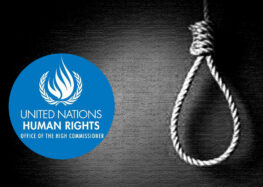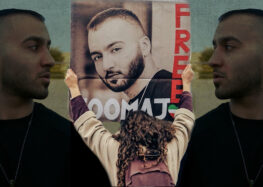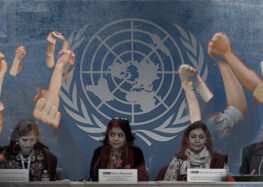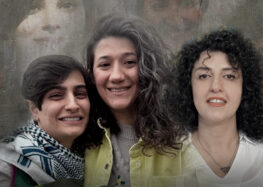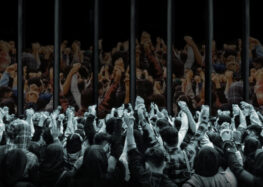Well-Known Cleric Urges Rouhani to Drop Justice Minister for Role in 1988 Prisoner Massacre
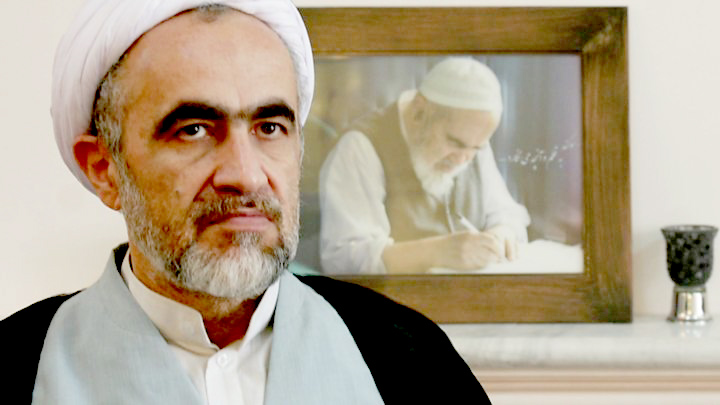
The son of the once heir apparent to Iran’s first supreme leader is urging newly re-elected President Hassan Rouhani to drop Justice Minister Mostafa Pourmohammadi from his cabinet for the major role he played in the 1988 massacre of thousands of political prisoners.
“Out of respect for the honorable people of Iran, I hope Pourmohammadi will not be introduced into the future cabinet,” Montazeri told the Center for Human Rights in Iran (CHRI) in a recent interview.
“Truths must be told, but unfortunately, the officials deny them and this harms everyone,” he added. “First of all, denying the truth denies knowledgeable people about their country’s history. We must take these painful historic events as experiences and learn how to prevent them in the future.”
“This will be Rouhani’s last term as president. To ensure the path of reform continues, he should carry out his promises and give people hope,” said Montazeri. “If people lose their hope, it would be a national catastrophe and affect future elections.”
In the summer of 1988, as the Intelligence Ministry’s representative in Tehran’s Evin Prison, Pourmohammadi was appointed by then-Supreme Leader Ruhollah Khomeini to what came to be known as a “Death Committee,” which ordered the swift executions of an estimated 4,500-5,000 political prisoners.
Another member of the committee, Ebrahim Raisi, was strongly criticized by human rights organizations and activists for his role in the massacre when he ran for the presidency in the May 2017 election.
“When people pointed out Mr. Raisi’s problems, they were sending Mr. Rouhani a very clear message,” Montazeri told CHRI.
“Even Mr. Rouhani himself echoed the people’s concerns during the election campaign and criticized the persecution, elimination and execution of opponents,” he added.
In a speech to his supporters at a campaign rally in Hamadan on May 8, 2017, Rouhani made a veiled reference to Raisi’s role in the massacre: “The people of Iran are saying they don’t accept those who only hung and imprisoned people for the past 38 years (since the revolution).”
In November 2016, Ahmad Montazeri, the son of the late Grand Ayatollah Hossein Ali Montazeri, was sentenced to six years in prison for publishing an audio file of his father directly condemning the committee—set-up by Khomeini—for ordering the executions.
In the 40-minute recording of the meeting, the grand ayatollah declares: “I believe this is the greatest crime committed in the Islamic Republic…and history will condemn us for it. This action has been carried out by you, good and pious figures in the judicial administration.”
Hosseinali Montazeri was ultimately sidelined by the ruling elite for condemning the executions and spent most of his elderly years confined to house arrest.
Ahmad Montazeri is currently free on furlough.
Montazeri told CHRI: “People must know what really happened in their country. In addition, the four members of the committee can come forward and tell the truth. Perhaps they could defend themselves by explaining how and why the executions took place and take the opportunity to apologize to the people. Transparency is the best way forward. Coming clean would be a service to themselves and to their country’s history.”
CHRI and other human rights organizations called for Pourmohammadi’s immediate withdrawal from the post of justice minister when he was appointed in 2013.
In its 2005 report “Ministers of Murder,” Human Rights Watch (HRW) documented Pourmohammadi’s direct role in the 1988 executions.
The death sentences were issued after revolutionary courts had already tried, convicted, and sentenced the vast majority of the victims to prison on national security charges following unfair trials.
Between 1988 to 1998, Pourmohammadi was in charge of the Intelligence Ministry’s foreign operations, a period when dozens of Iranian dissidents were assassinated in exile.
According to two HRW sources, Pourmohammadi was also implicated in the “serial murders” (also know as the “chain murders”) of prominent intellectuals in Iran in 1998 by agents of the Intelligence Ministry.
Pourmohammadi refused to respond to a request by HRW on October 28, 2005 requesting a comment about the allegations.

